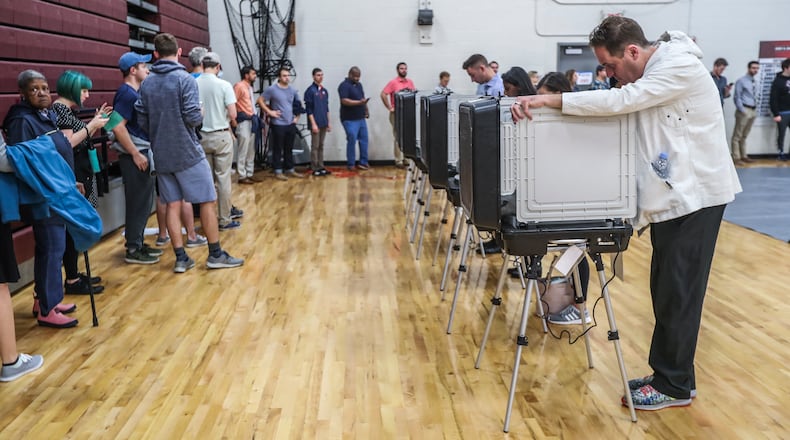Georgia might begin participating in a 25-state effort to cancel voter registrations of voters who move away or die.
The state could enroll in the Electronic Registration Information Center, according to House Bill 316, a broad elections bill introduced last week that also calls for Georgia to replace its electronic voting machines.
States that participate in ERIC, a state-funded nonprofit organization founded with assistance from The Pew Charitable Trusts, share voters' information to identify those who no longer live in states where they're still registered to vote.
Georgia Secretary of State Brad Raffensperger said ERIC would help election officials ensure that only eligible voters are registered. About 13 percent to 15 percent of Georgians move every year, he said.
“That would be one of the best ways for us to keep our lists fresh clean and accurate,” Raffensperger said. “It's a very robust software that connects us with other states. ... You'll actually find out who's moving, and it connects with death records.”
States that participate in ERIC contribute voters' confidential information, including driver's license numbers and the last four digits of Social Security numbers, according to the Brennan Center for Justice at New York University School of Law. House Bill 316 requires that information received by Georgia from ERIC would be exempt from the Georgia Open Records Act.
More than 1.4 million voter registrations have been canceled in Georgia since 2012, according to federal and state elections data.
Most election administrators said they had positive experiences with ERIC, and some states’ election officials have used the system to identify potential new voters, according to a report published last year the Brennan Center.
But the information-sharing effort has its limits, according to the report, "Purges: A Growing Threat to the Right to Vote."
For example, it can be difficult to determine voters’ most recent address, especially those who move frequently, said the Brennan Center’s report. And local election officials ultimately have to identify errors and determine which registration is more current.
ERIC is different from a separate multi-state voter registration checking program called Crosscheck, which compared voter lists and identified potentially invalid and duplicative registrations. Crosscheck has faced criticism for erroneously flagging legitimate voters, according to the Brennan Center.
Georgia election officials in previous years contributed voter information to other states that participated in Crosscheck. But the state government never used Crosscheck data to remove Georgia voter registrations, a spokeswoman for the Secretary of State’s Office said last year.
About the Author
Keep Reading
The Latest
Featured



